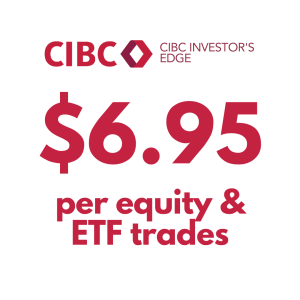
Especially in the fields of real estate, stocks, and sales, a commission fee is inevitable. It’s usually in the form of a certain percentage of the sales price. For investors, it can adversely affect the total cost and profit of investments. For instance, brokers often get a commission for every transaction, sometimes for the total value of the portfolio. But when we talk about real estate, the agent is paid a commission for facilitating the property transaction. These are just a tiny segment of what commission fees entail. Read on to learn all you need to know about a commission fees in Canada!

Table of contents
What is a commission fee?
A commission fee is a service charge or fee paid to a person or entity to compensate them for offering a service. Examples of these services include completing sales transactions and offering advice to clients. The commissions are usually paid to brokers, agents, salespeople, and the like.
To explain further, let’s take a look at an example. John is an ardent lottery player who has dreams of getting a bigger and more conducive house. After years of small wins and more losses, his persistence and mastery eventually won him a sum of $3.5 million. With much excitement, John finally got a chance to get his dream home.
CIBC Investor’s Line Offer
Up to $6.95 per online stock or ETF trade. Plus, there’s no minimum account balance.
He immediately listed the former house with a real estate agent for $300,000. After much awareness and advertising, the real estate agent eventually found a buyer for John’s house. As the pioneer of the sale, the agent gets a commission of $9,000 (3%) as payment for the listing and sales services rendered.
This is a short illustration describing a commission fee and how it works. Although in some cases, it can be a flat rate, not a percentage, but read on to learn more!
What is a commission vs commission fee?
Commissions and commission fees are closely related, often used interchangeably. Although they differ slightly in meaning and context.
A commission is usually associated with sales-related activities. It’s a fee imposed by industries such as retail, real estate, insurance, and finance. You can also view it as compensation an individual or entity receives for a specific service or sale provided. The compensation can be a flat rate or a percentage. But a percentage of what exactly? Typically, the percentage of the total transaction amount. For instance, if a retail sales person facilitates the sale of clothing, their commission would be based off the total clothing’s purchase price. However, it really depends on the specific entity and circumstances.
A commission fee is associated with a brokerage, financial institution, or service provider. It is a service fee imposed by these entities on investors and clients for executing a transaction on their behalf. Commission fees can also be explained as the cost incurred by buyers or sellers for facilitating transactions. Furthermore, utilizing the services of the institution also attracts commission fees. A commission fee can also be a fixed amount per share or trade, like a commission. Similarly, it can also be charged as a percentage of the transaction amount or capital gains.
Ultimately, commissions and commission fees are basically the same — they’re the cost of facilitating a transaction!
CIBC Investor’s Line Offer
Up to $6.95 per online stock or ETF trade. Plus, there’s no minimum account balance.
What is the minimum commission fee?
The minimum commission fee refers to the lowest amount you will have to pay a brokerage or agent. In other words, it’s the minimum cost for utilizing a specific service or facilitating a transaction.
The minimum commission fee is not the same for all institutions and entities. It can vary depending on the brokerage, financial institution, or agent and the nature of the transaction executed. Different entities have distinct minimum fee requirements. They vary depending on sales price, specific service offered, nature of the investment, or trading volume.
For example, a stock brokerage might have a minimum commission fee of $4 per trade, with 1% of the transaction amount as the standard commission. If you wish to purchase $100 of stock, your commission cost would be $4, not $1 (1% of $100). This is important to keep in mind because you’d be better off waiting to make a $400 stock purchase to ensure you’re not overpaying on commissions.
According to the National Bank of Canada (NBC), the minimum commission fee for Canadian stocks or ETFs has a flat rate of $44.95. While Global Stocks or ETFs have a minimum commission of $75.00.
How do commission and fees work?
Commission and fees are two terms that are mostly used interchangeably. But truthfully, they are two different terms with distinct meanings. So, what differentiates a commission from a fee? Let’s have a peek at it below.
Since the picture of commissions has been carefully painted in previous sections, let’s get a glimpse of what a fee is. As opposed to a commission, a fee is a flat or fixed amount you pay to a brokerage or financial institution for services rendered. Although fees share certain notable features with commissions, in contrast, a commission may fluctuate based on the transaction amount, but a fee doesn’t. This flat rate can either be a dollar amount or a percentage of AUM (assets under management).
Commissions and fees work according to the nature of the job and entity providing the service. For instance, real estate agents usually charge commissions as a percentage of the sale price of houses. Whereas recruiters usually impose a certain flat rate for placing a single employee. A stock brokerage, on the other hand, makes a commission for each trader’s transactions. The timing of the payment for each of these examples is often at the same time of the transaction. However, that can vary depending on the nature of the transaction and the entity you’re dealing with too.
At the end of the day, fees and commissions are very similar in nature. As a consumer, the important thing to know is what you’re going to be charged, when you’ll be charged, and what the fee or commission is for.
CIBC Investor’s Line Offer
Up to $6.95 per online stock or ETF trade. Plus, there’s no minimum account balance.
Are commission fees tax deductible?
In most cases, no, commission fees are not tax deductible in Canada. This is especially true in the realm of personal finances, unfortunately.
The main exception is if the commission was incurred as a cost of business. Under these circumstances, you would need to be either self-employed or own an incorporated business. In addition, the greater transaction must be incurred as a part of business.
For instance, if you’re self-employed and are purchasing a home, this wouldn’t be considered a business cost because it’s a personal residence purchase. But if you hired a real estate agent to find you an office space that resulted in a commission, that cost would be tax deductible.
The only other exception is if you incurred a commission to dispose of an asset that resulted in capital gains tax. In some cases, you can deduct the cost of the commission against the capital gain, thereby reducing your tax burden.
Related Reading: Are financial advisor fees tax deductible in Canada?
Are stock commission fees tax deductible?
The Canada Revenue Agency (CRA) disallows stock commission fees to be tax deductible in Canada. But there’s an exception to this policy if you trade stocks actively as a business. You can claim stock commissions as a deduction, which can be seen as valid business expenses. Furthermore, this is true for professional traders who meet the criteria for trading stocks as a business or self-employed entity.
As an added piece of knowledge, unlike stocks, mutual fund management fees are tax deductible. They are fees imposed on your investment, which is only true for non-registered accounts. Since registered accounts, like TFSAs and RRSPs, have various tax advantages, they are exempt mutual fund fee tax deductions.
Are real estate commission fees tax deductible?
If you are purchasing a home and incur a commission, it is not tax deductible in most cases. But if you are selling a home and incur a commission, you can usually deduct the cost against the capital gain. Although, you usually can’t create a capital loss by deducting a real estate commission fee.
Most real estate purchases and sales are for personal uses. However, if you purchase, lease or rent real estate for business uses, the commission would be tax deductible. This is because the cost was incurred to earn revenue as a business owner or self-employed individual.
Helpful Tool: Mortgage Calculator
What is a good commission fee?
Some key factors determine a good commission fee. These factors may vary depending on the product, the industry, the salesperson’s experience, and the services being sold. An average and reasonable commission fee for a salesperson falls between a range of 20% and 30%. Some companies, however, pay a commission rate as high as 40% to 50%. For real estate, you should consider the expertise and services offered by the agents. A popular commission for real estate agents in Canada ranges between 3% and 7%. Meanwhile, stock trading offers a varying commission fee depending on the brokerage or platform. Often, the standard benchmark is 1% to 2% of the total transaction price.
Read More: What is a fee only financial planner?


